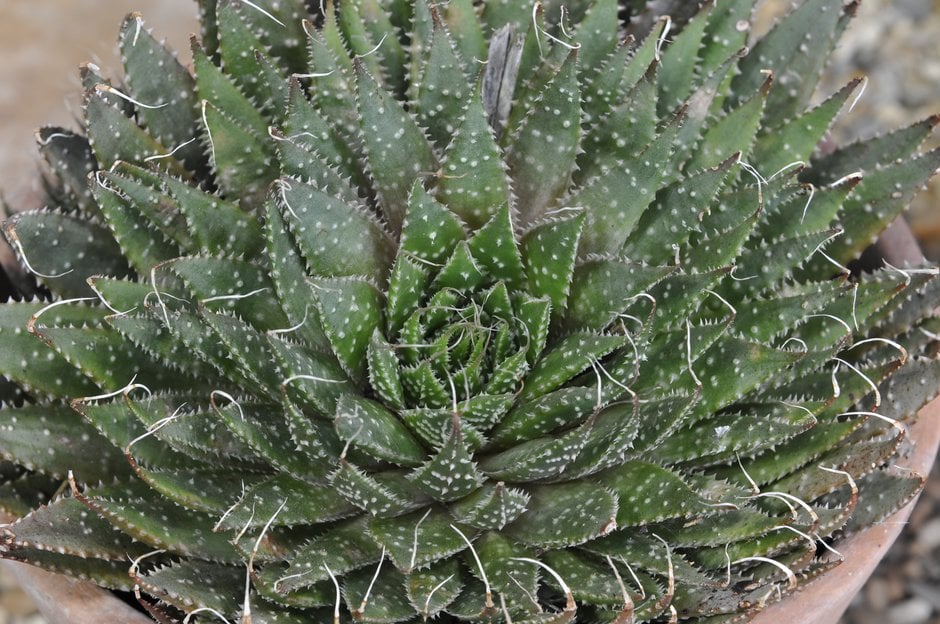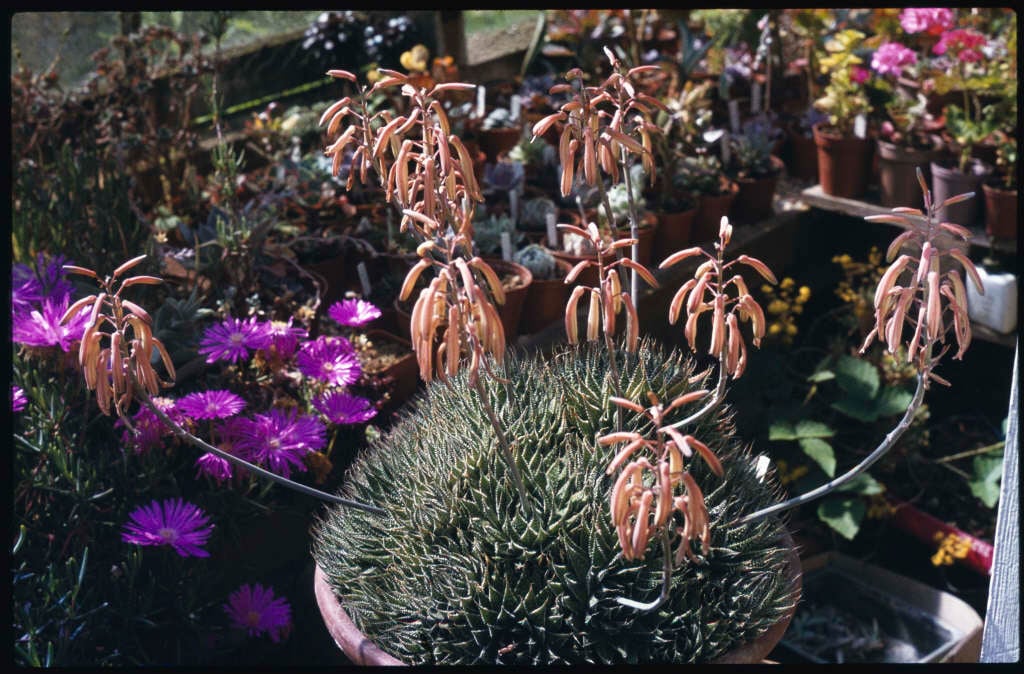Aristaloe aristata
lace aloe
An evergreen perennial to 20cm forming rosettes of fleshy lance-shaped leaves spotted with white and tipped with a soft white spine, with tubular, orange-red flowers 4cm in length in panicles to 50cm in length in autumn
Size
Ultimate height
0.1–0.5 metresTime to ultimate height
5–10 yearsUltimate spread
0.1–0.5 metresGrowing conditions
Moisture
Well–drainedpH
Acid, Alkaline, NeutralColour & scent
| Stem | Flower | Foliage | Fruit | |
| Spring | Green White | |||
|---|---|---|---|---|
| Summer | Green White | |||
| Autumn | Orange Red | Green White | ||
| Winter | Green White |
Position
- Full sun
Aspect
South–facing or West–facing
Exposure
Sheltered Hardiness
H2Botanical details
- Family
- Asphodelaceae
- Native to GB / Ireland
- No
- Foliage
- Evergreen
- Habit
- Tufted
- Potentially harmful
- Ingestion may cause severe discomfort. Wear gloves and wash hands after handling
- Name status
Correct
- Plant range
- S Africa, Lesotho
How to grow
Cultivation
Grow indoors in a container of peat-free, cacti potting compost, or peat-free, loam-based potting compost with added horticultural grit. Water moderately when in growth, very sparingly when dormant in winter. Apply a general liquid fertiliser monthly from May to August. Can be placed outdoors in summer, see aloe cultivation for further advice
Propagation
Propagate by seed as soon as ripe, or propagate by separating offsets in spring or early summer. Root offsets in cactus potting compost
Suggested planting locations and garden types
- Patio and container plants
- Mediterranean climate plants
Pruning
No pruning required
Pests
May be susceptible to scale insects and mealybugs
Diseases
Generally disease-free
Get involved
The Royal Horticultural Society is the UK’s leading gardening charity. We aim to enrich everyone’s life through plants, and make the UK a greener and more beautiful place.

